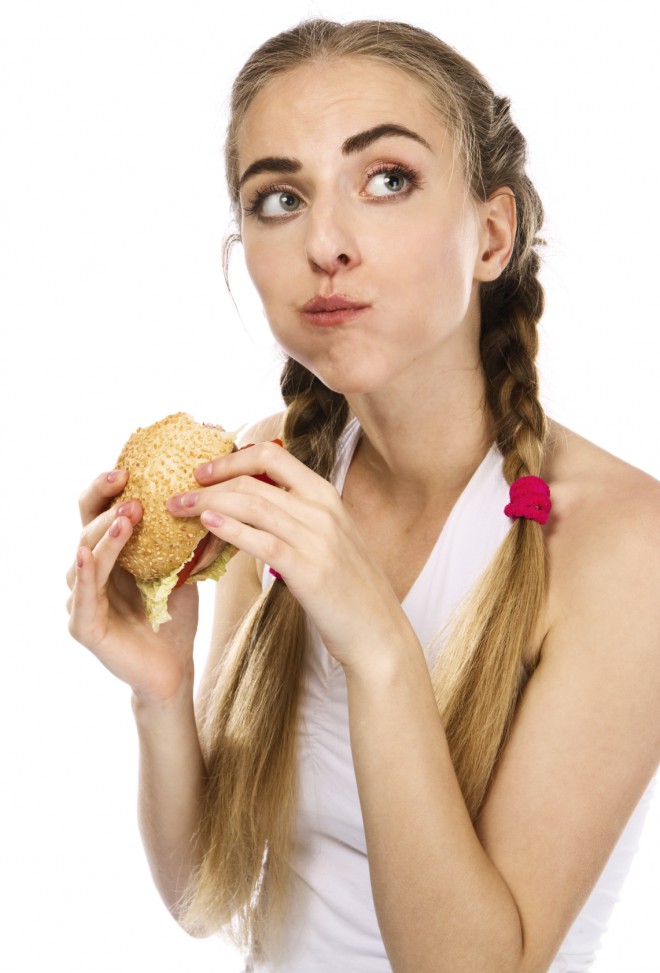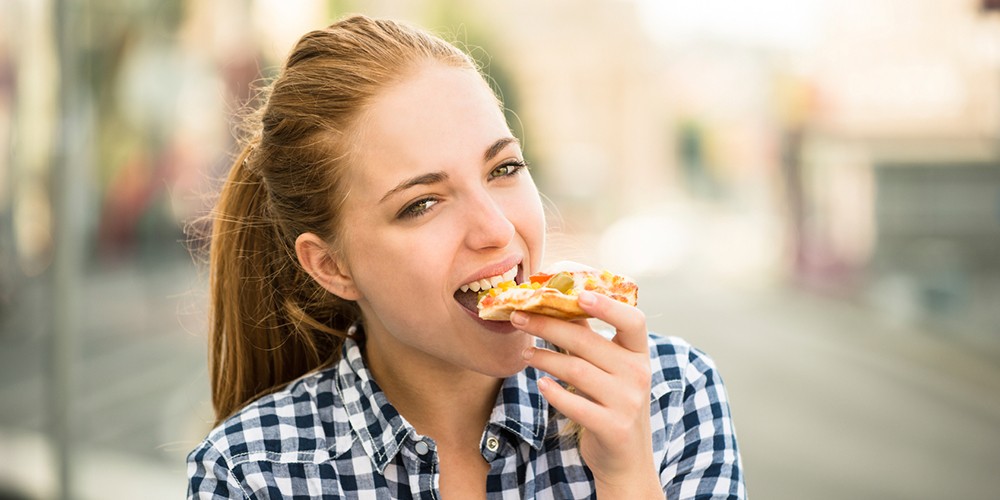While we all start losing weight with food and what to cross off our menu, we forget that the measures don't have to be so drastic if we take care of good digestion. This starts with the introduction of food into the mouth. Remember when your parents read Leviticus to you because you didn't chew your food enough before swallowing it? At the time, you probably didn't understand why chewing was so important, but parents didn't howl there in one day. Chewing is the key to good digestion and good digestion is the way to a slim figure.
Diet we usually start at the wrong end. It is not so important what goes into our mouths as that chew food well before swallowing. It is actually chewing the secret ingredient to weight loss and the path to a slim figure. And if your parents warned you when you were a child that you should chew your food well before swallowing it, it was wise if you followed their advice, because you still know this on your body today. Otherwise, you're probably one of those who chew the cud six times in all before you swallow it, as a recent study she conducted found the Subway food chain. It's kind of in keeping with today's fast pace of life, when we often eat too quickly and swallow food instead of chewing it concretely.

This is extremely important, because the process of breaking down food it starts already in the mouth, not until it crosses the esophagus. Strong with him relieve the upper part of the gastrointestinal tract, as the food breaks down into smaller pieces, digestive enzymes in saliva however, they come into contact with a larger surface, which means they have more "meat" to process. Enzymes quickly process food and break it down into individual components that cells can absorb and use (by chewing, the body absorbs more nutrients and protein– the latter help in muscle growth). Thus, the dismantling process starts already on the "upper floor", it follows protein breakdown, for which she is in charge Gastric acid in the stomach, and in the next phase the food, or what is left of it, is still in the hands basic gut environment, where the pieces are finally broken down. Chewing performs another important function. It sends a notification in advance gastrointestinal tract (ie the alimentary canal) that the food is on its way and that it should "put the acid on the fire" for further decomposition.
READ MORE: Is this the key nutritional principle for a lean body?
Some experts (Westchester University of Pennsylvania) say you should chew each bite 30 to 50 times before it is swallowed, others (Ohio State University) say that it is the norm for softer foods from 5 to 10 times, and for a more compact one, at least 30 times. It sounds like a lot, but the number is not impossible to achieve. But this does not mean that you now have to count between each bite and destroy the joy of food. At first, you will have to do it consciously, but soon you will passed into the blood.

Chewing is good from another point of view. Slow down the eating process. Well chewed food like that it stimulates the action of those parts of the body that are responsible for giving us a feeling of satiety (the signal sent by the stomach, i.e. the feeling of satiety, travels to the brain 20 minutes). If we chew too little, these feelings are usually late for "work", but if we eat slowly, they are punctual as German trains. In the first case, we already exceed the "limit" when we receive a warning and have already consumed more than necessary. By eating more slowly like that portion sizes are easier to control and calorie intake is reduced and many studies have subscribed to this claim. One finds that people who eat more slowly eat more on average per meal 88 calories less, another demonstrated that intake decreases by a third, again a third that those who chewed a bite 40 times before swallowing it ate 12 percent less than those who chewed it only 15 times. And if you are afraid that you will not be able to cope with the task, don't ever throw a gun into the corn. It exists for everyone application, also for how many times you chewed the food before swallowing it.






